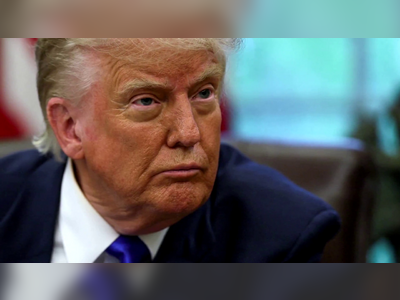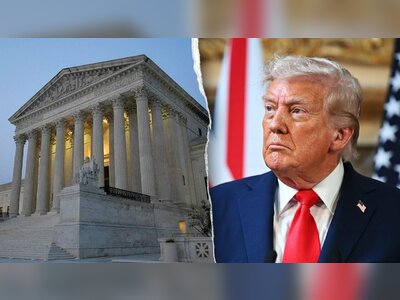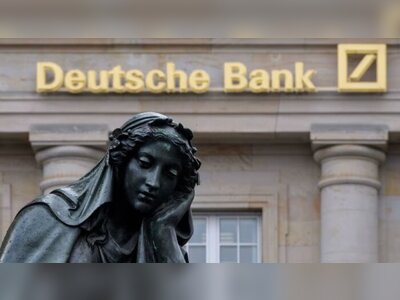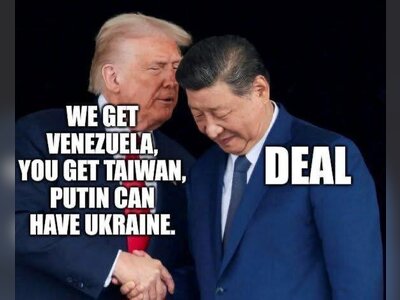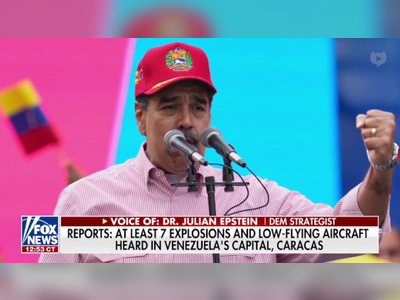France at the Precipice: Barnier's Administration Confronts Unprecedented No-Confidence Vote
The political stalemate in Paris prompts inquiries about governance, resilience, and the future of one of Europe's most crucial nations.
France is well-acquainted with political turmoil, but the current crisis in Paris could become a landmark event in the nation’s modern history. Prime Minister Michel Barnier's administration is on the brink of collapse, with a looming no-confidence vote likely to oust him. If it proceeds, this would be the first successful no-confidence motion to topple a French government since the early 1960s, thrusting the country into unfamiliar territory.
The stakes are exceedingly high. The fledgling government, established only months ago, struggles to manage a divided parliament lacking a clear majority. Barnier's proposed budget—a contentious blend of tax increases and sixty billion euros in public spending cuts—faces staunch opposition from both Marine Le Pen’s far-right National Rally and the far-left New Popular Front alliance. These unlikely allies have united against the centrist administration, underscoring France’s deep political divisions.
Appointed by President Emmanuel Macron after early elections earlier this year, Barnier has justified the budget as essential for stabilizing France’s finances. "The moment is serious," he stated to lawmakers on Tuesday. "It is difficult, but the stakes are not impossible." Critics, however, argue that the reforms are severe and inequitable, accusing Barnier of burdening ordinary citizens while neglecting systemic inefficiencies.
Le Pen has capitalized on this opportunity, presenting herself as a defender of the French people, calling the budget "dangerous," and pledging to shield the nation from what she terms "punitive austerity." However, her alliance with the far-left brings its own challenges. While her base largely supports opposing the government, more moderate conservatives might view her cooperation with ideological adversaries as political opportunism.
The repercussions extend beyond France. As a major economy within the European Union and an influential bloc member, French political instability impacts the continent. President Macron, currently abroad on a diplomatic mission, has cautioned that the vote could worsen an already fragile economic and social landscape. European leaders are observing attentively, amid volatile financial markets and global uncertainties, including the potential return of Donald Trump to the White House.
Domestically, Barnier’s possible removal could have significant consequences. The French constitution forbids new elections before July, which would leave the country under a caretaker government tasked with handling crucial fiscal and social policies. This provisional solution might involve extending existing budget measures, preventing immediate economic paralysis but offering little in terms of lasting solutions.
The larger issue is whether France’s political framework can withstand this tumult. The far-left and far-right’s collaboration against the government highlights rising polarization among voters. With declining confidence in political institutions, Barnier's downfall might further undermine trust in conventional governance and pave the way for more radical alternatives.
France’s finance minister has cautioned that ousting the government would "harm the nation" and leave the French populace to endure the consequences. Yet, many opposition MPs believe that decisive action is the only viable course. As one leftist lawmaker expressed, "Blocking this budget is, alas, the sole constitutional means to safeguard the French people."
The unfolding drama in Paris is not merely a leadership crisis—it tests France’s identity and resilience. Will the nation’s democratic institutions rise to the occasion, or will this signify a deeper descent into political disorder?
As France prepares for what some are calling a "moment of truth," one certainty remains: decisions made this week will shape the country’s future for years. Whether through compromise or confrontation, the nation must find a path to bridge its differences and reaffirm its commitment to democratic values, accountability, and the common good.
The stakes are exceedingly high. The fledgling government, established only months ago, struggles to manage a divided parliament lacking a clear majority. Barnier's proposed budget—a contentious blend of tax increases and sixty billion euros in public spending cuts—faces staunch opposition from both Marine Le Pen’s far-right National Rally and the far-left New Popular Front alliance. These unlikely allies have united against the centrist administration, underscoring France’s deep political divisions.
Appointed by President Emmanuel Macron after early elections earlier this year, Barnier has justified the budget as essential for stabilizing France’s finances. "The moment is serious," he stated to lawmakers on Tuesday. "It is difficult, but the stakes are not impossible." Critics, however, argue that the reforms are severe and inequitable, accusing Barnier of burdening ordinary citizens while neglecting systemic inefficiencies.
Le Pen has capitalized on this opportunity, presenting herself as a defender of the French people, calling the budget "dangerous," and pledging to shield the nation from what she terms "punitive austerity." However, her alliance with the far-left brings its own challenges. While her base largely supports opposing the government, more moderate conservatives might view her cooperation with ideological adversaries as political opportunism.
The repercussions extend beyond France. As a major economy within the European Union and an influential bloc member, French political instability impacts the continent. President Macron, currently abroad on a diplomatic mission, has cautioned that the vote could worsen an already fragile economic and social landscape. European leaders are observing attentively, amid volatile financial markets and global uncertainties, including the potential return of Donald Trump to the White House.
Domestically, Barnier’s possible removal could have significant consequences. The French constitution forbids new elections before July, which would leave the country under a caretaker government tasked with handling crucial fiscal and social policies. This provisional solution might involve extending existing budget measures, preventing immediate economic paralysis but offering little in terms of lasting solutions.
The larger issue is whether France’s political framework can withstand this tumult. The far-left and far-right’s collaboration against the government highlights rising polarization among voters. With declining confidence in political institutions, Barnier's downfall might further undermine trust in conventional governance and pave the way for more radical alternatives.
France’s finance minister has cautioned that ousting the government would "harm the nation" and leave the French populace to endure the consequences. Yet, many opposition MPs believe that decisive action is the only viable course. As one leftist lawmaker expressed, "Blocking this budget is, alas, the sole constitutional means to safeguard the French people."
The unfolding drama in Paris is not merely a leadership crisis—it tests France’s identity and resilience. Will the nation’s democratic institutions rise to the occasion, or will this signify a deeper descent into political disorder?
As France prepares for what some are calling a "moment of truth," one certainty remains: decisions made this week will shape the country’s future for years. Whether through compromise or confrontation, the nation must find a path to bridge its differences and reaffirm its commitment to democratic values, accountability, and the common good.

